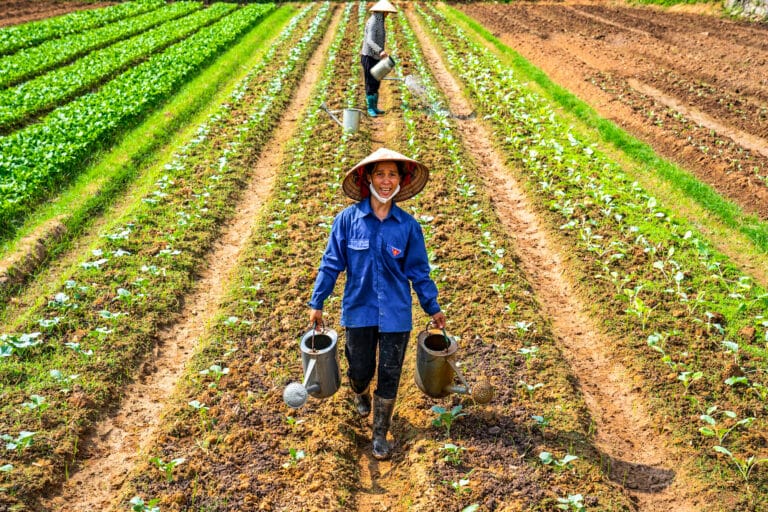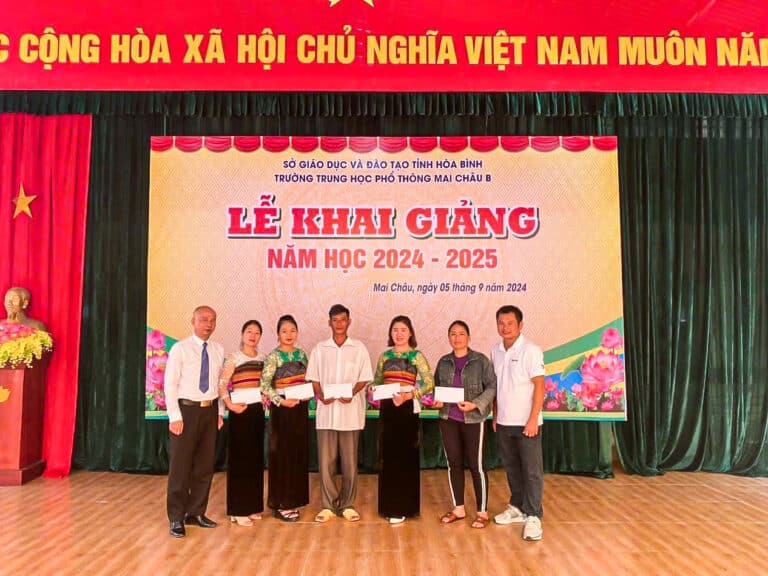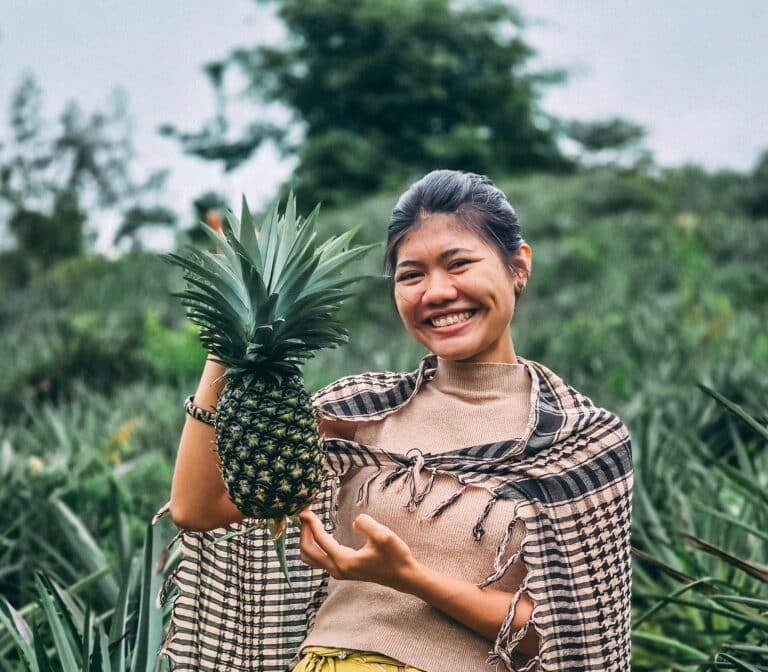
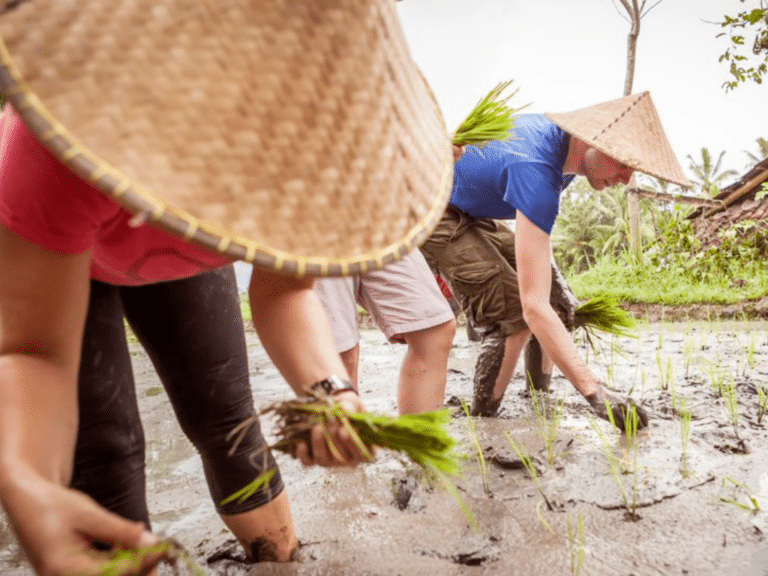
Learning Programs with Lifelong Impacts: DET in Indonesia
Last month we published our first piece in our series “Learning Programs with Life-long Impacts: DET in…”, beginning with Cambodia. We wanted to highlight Discova educational tours that immerse student groups in local communities and environments in authentic, lasting ways. We chose five of our favourite such tours in Asia, and this month we’re introducing the second of the series.
This time around it’s Indonesia’s turn, where our Discova Educational Travel (DET) team has created a program that seeks to give students insight into sustainable farming processes (both inland and along the coast), and a better understanding of how Indonesia’s ocean and natural resources can be protected. As with all our community-impact programs, the lessons learnt here are ones we hope student groups will apply once back home. Hanh Nguyen, one of our amazing Travel Designers, gave us insight into the main takeaways of this important program.
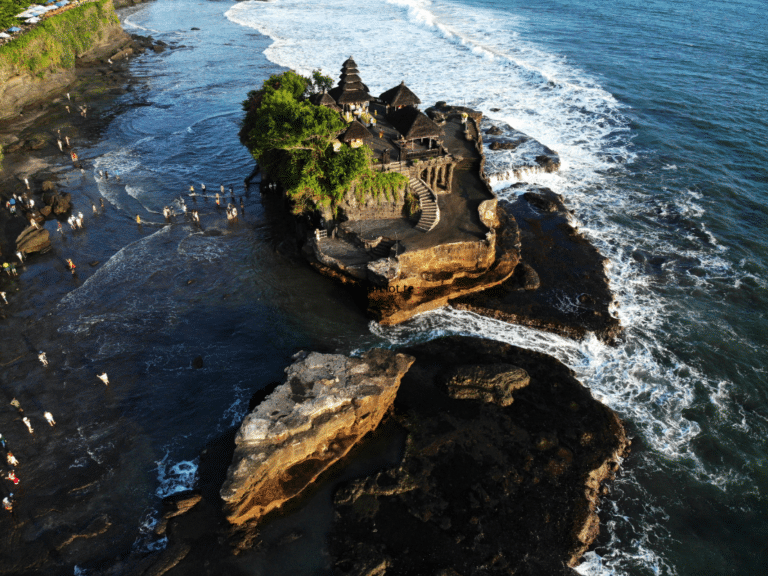
What does the program entail?
During this immersive, six nights and five days itinerary, students discover something new on each day. From culture to the environment, groups take part in activities that teach them about local customs, sustainable farming and marine conservation.
The program begins with splendid temple visits that introduce students to Bali’s unique Hindu culture, after which they get hands-on in a rice field with local farmers. The following day offers an unusual lesson in seaweed agriculture. Students join local seaweed farmers and learn how to harvest, replant and dry seaweed, and find out how this natural resource can be used sustainably to make soap products.
The final two days are spent by the ocean and in a mangrove forest and eco park. Students take part in a beach clean-up and play several games that are designed to teach them about ocean conservation and marine protection. Our partners at the Coral Triangle Center (CTC) organise these exceptional and fun learning activities. The final day of activity takes them to Tuban’s mangrove forest, where they discover the importance of this fragile ecosystem. Here, they also have the opportunity to plant a few mangrove trees themselves.
The program is well-suited to senior high school students whose curriculum involves community service and social responsibility objectives, but can also be tailored to a university group. For university groups, talks with professionals (from the CTC or ZeroWaste Center, for e.g.) would in this case be adapted, becoming more technical and in-depth, according to preference. We try to keep the workshops to one or two hours for high school/younger students, but these too can be adjusted to be longer and more detailed for older participants.
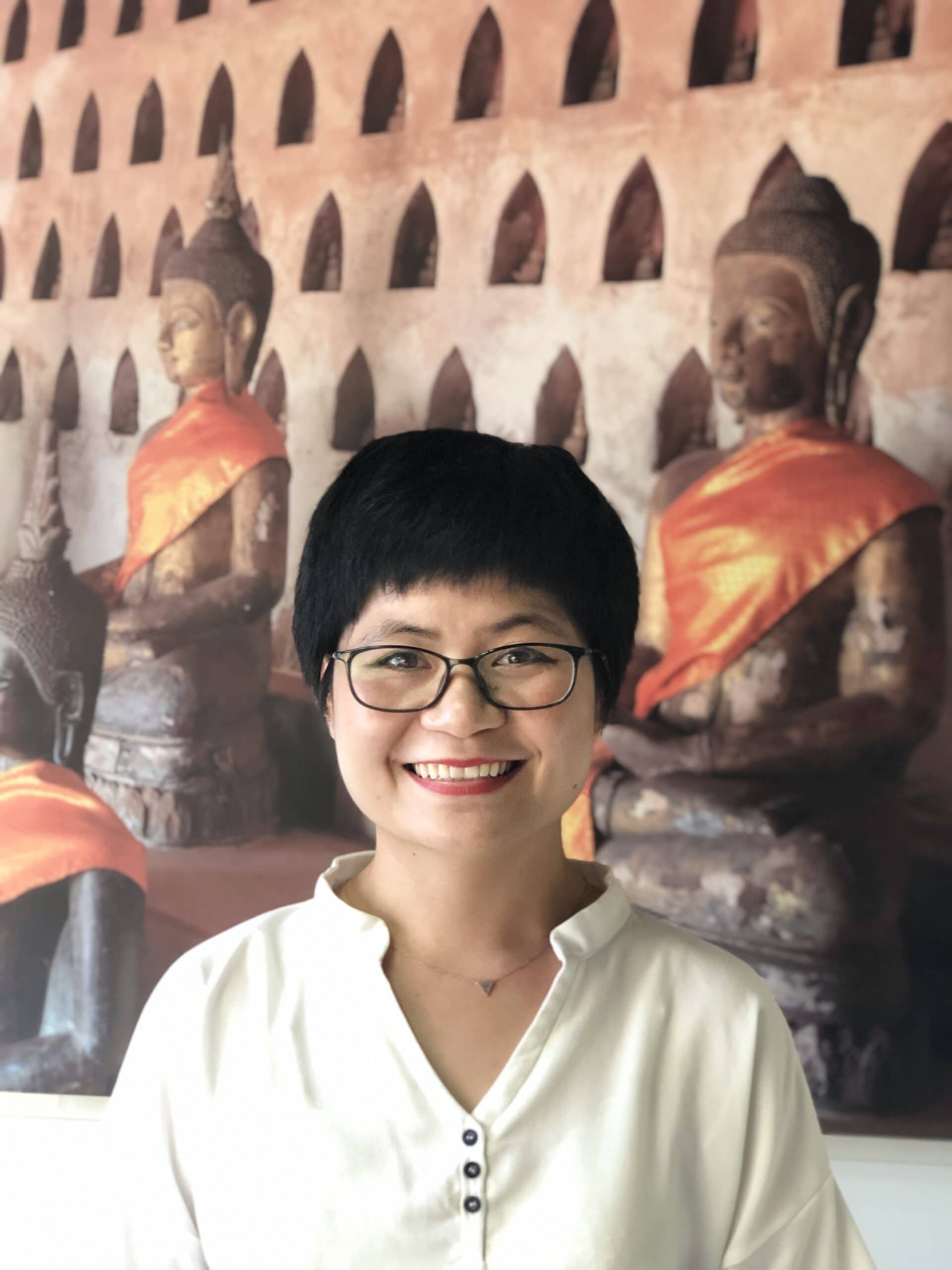
What are the unique learning outcomes for students?
1. Environmental protection and sustainability awareness.
“The consistent element in this program is that each day involves hands-on activities for the students”, Hanh praises. Students don’t just hear about how they can help the environment and local communities, but get directly involved. They physically help out with sustainable farming practices, dig into soil to harvest rice and plant seedlings or trees, and pick up litter on beaches that really need clean-up support.
2. Teamwork and collaboration.
Whether students work together in a team or with local community members, the activities in this program foster collaborative work. From helping a farmer harvest his rice crop, to taking part in a beach clean-up competition where the team with the most collected trash wins, the program teaches students that more can be achieved together.
3. Appreciation for different cultures.
Bali is much-loved for its uniquely blended Hindu religion and culture, and from day one students become acquainted with it through splendid temple visits. Moreover, they closely interact with local farmers and conservation experts, getting personal insight into the region’s customs, challenges and societal approaches.
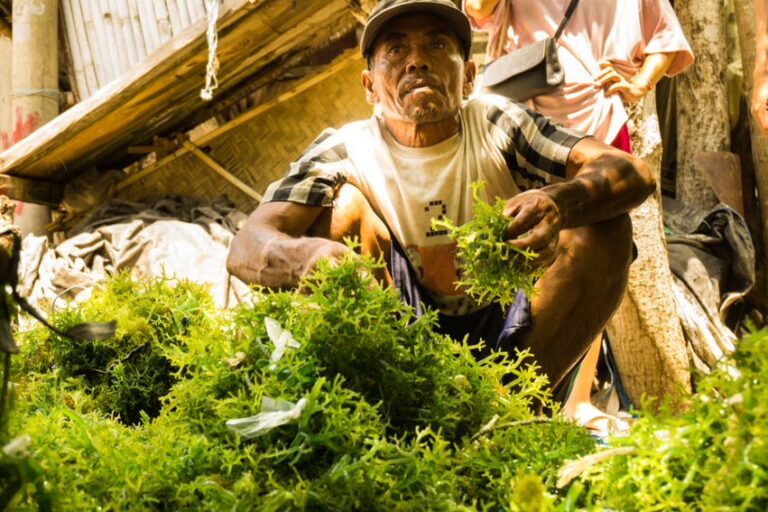
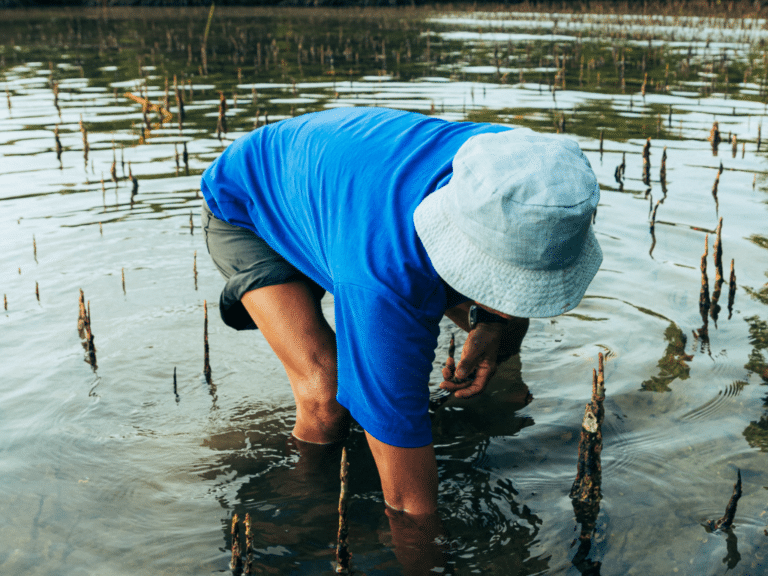
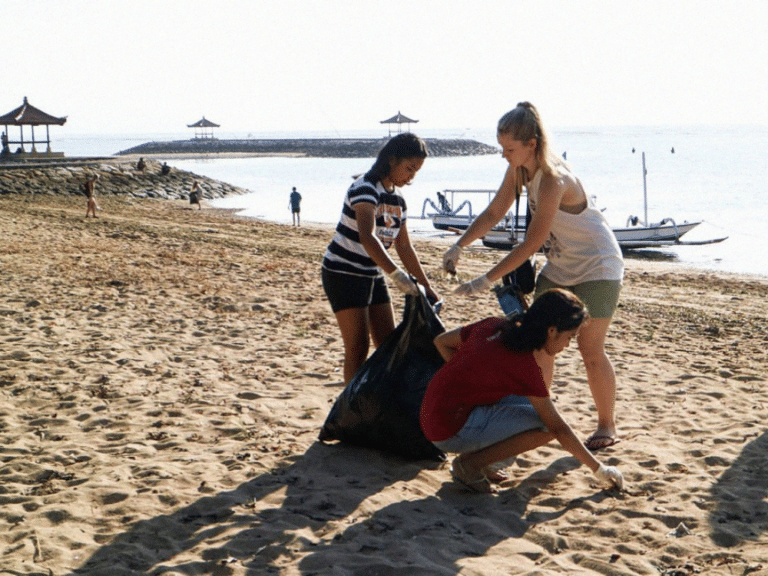
Why here? And how does this program benefit the community?
Bali and its neighbouring islands have become an incredibly popular holiday destination, and with that come undeniable consequences. This program was designed to aid local communities in mitigating some of the harmful effects (like ocean and beach pollution) of mass tourism here. Students gain an awareness of environmental and coastal protection, while local people benefit from much-needed help in achieving sustainability goals. Hanh notes that “it’s not just one or two groups who contribute, the effect is long-lasting with the continuous support of each new group that arrives”.
The effect is particularly pronounced in less-visited areas like Nusa Penida, where local seaweed farmers really benefit from extra helping hands. Many young people in the community head over to Bali to work in tourism, and that means that the older seaweed farmers often lack the manpower to manage the significant seaweed production in the area. While student groups learn about unique agricultural methods, the real winners are the local farmers whose daily work is made easier.
Plans for the future
Hanh emphasises that the support that is provided to the communities during this Indonesia program is meant to last as long as it is needed and we can provide visiting groups. The ideal scenario is that one day, when these communities have no more need for this support, we can continue to expand and move the program’s activities to other regions.
On Bali, we have become especially invested in the small village of Manggis over the past two years or so, and here we see potential for student groups to get involved too. After fixing the village’s canal irrigation issue with Bali Rare Paduraksa (BRP), and successfully converting the farmers here to organic rice production, we are now implementing programs that will ready the community for the increasing return of tourism. What’s better is that they’re run by the community, for the community. We’re just there to guide the process.
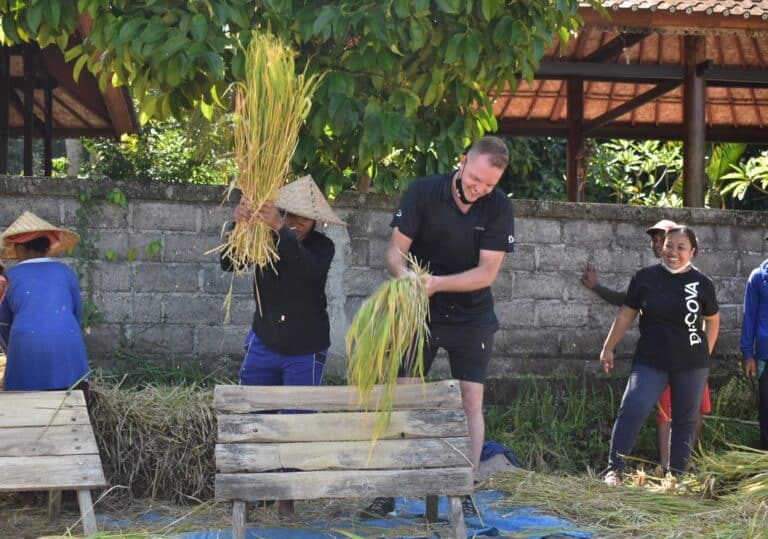
As the Manggis community continues to develop, we see that in the future there may be opportunities to bring student groups here too. Activities would centre around learning about organic farming methods and taking part in community workshops that empower local villagers.
Let’s talk
Educational Travel
Request a quote, book a meeting, ask a question, or share a dream
Receive news like this directly in your inbox
Subscribe to the dedicated Discova Educational Travel mailing list


